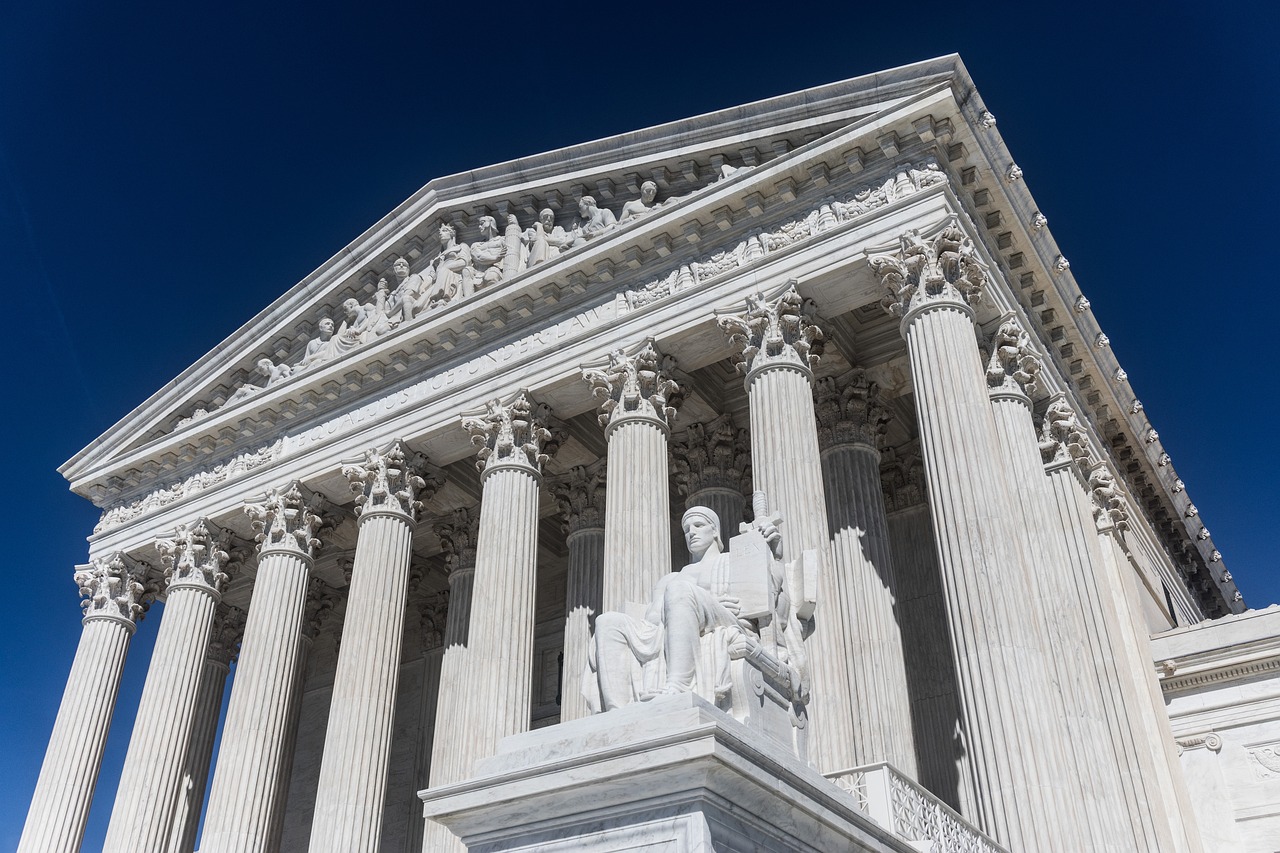The Supreme Court considered two state laws from Texas and Florida designed to prevent social media platforms from hiding or removing posts by their users. The laws were passed in the wake of the Jan. 6 insurrection, after which social platforms removed then-president Donald Trump’s account and deemphasized posts from conservative users who spread election disinformation and hate speech.
The tech companies who are plaintiffs in the cases before the high court say they have a First Amendment right to create rules on their platforms.
Charles “Rocky” Rhodes teaches constitutional law at South Texas School of Law in Houston. He says two of the court’s conservative judges appeared to accept the tech companies’ First Amendment argument. Listen to the interview above or read the transcript below.
This transcript has been edited lightly for clarity:
Texas Standard: Let’s first get folks up to speed. In case they missed it yesterday, these Texas and Florida laws would do what, exactly, to these social media companies?
Charles “Rocky” Rhodes: They would preclude [the platforms] from being able to center viewpoints with respect to making determinations as to their content moderation.
In other words, they could not delete or alter or edit or post an addendum to or anything else with respect to a social media post or other type of social media communication based on the view that was stated in that post.
All right. Now let’s get to the oral arguments. What happened? The oral arguments lasted more than 3.5 hours, as I understand it. A lot has been said about this being a conservative-leaning court, to put it mildly. What were you hearing from the bench?
Well, ideology was certainly at play here. You definitely saw, at least in the questions, the hints that we can take from the questions, that Justice Alito and Justice Thomas especially have bought into the narrative that this is all about censorship of conservative voices. And so, therefore, they seem to be very strongly in favor of upholding both the Texas and the Florida laws in their entirety.
Whereas you had other individuals associated with the right – Justice Kavanaugh, Chief Justice Roberts – who were more concerned about the fact that these laws are regulating the expression of businesses and that has typically and traditionally been protected by the First Amendment. And they seem to be much more doubtful that these laws could survive a constitutional challenge.
So kind of an interesting split in the normal way that we think of the court going from the right to the left, that the judges on the right were somewhat divided, with some of them doing more of the ideological perspective that this is all censorship against conservative voices, whereas others of the justices were sticking with the traditional ideas that have been expressed in many cases, that corporations have free speech rights, too. And those include disassociating yourself from the speech that is against your own views and principles.
It’s a tricky business to try to pick where the court is going to ultimately land. But from the analysis that I’ve heard and little that I actually heard of the oral arguments, a lot of folks saying perhaps a 6-3 decision in favor of the social media companies, getting to the point that you were talking about a majority of the justices seeming somewhat, at least in terms of their questions, unwilling to rock the boat when it comes to past precedent on a hands-off on corporate ownership of these platforms.
I think that’s right. Especially with respect to the Texas law, you have the feeling that it’s probably going to be struck down in a 6-3 vote. At least that seems to be the indication from the questions that the justices were asking at oral argument. Although, of course, they can always change their mind when they go back and write the opinion.
Now, the Florida law might have a different application. This hadn’t been worked out by the lower courts yet, but there were concerns that had been expressed by the court that the Florida law might apply not just to these large social media platforms, but also to companies like Etsy and Uber that are providing services. And if the court makes that determination, there may need to be aspects of the Florida law that could be upheld.
That’s going to have to wait and see what the court does with its opinion.













